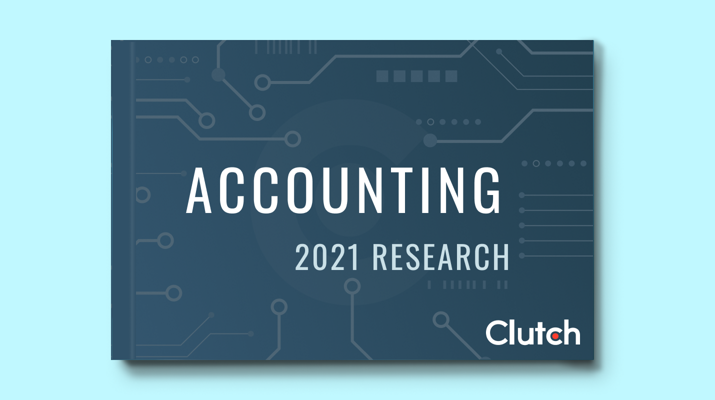![How to Create a Budget for Accounting Services [With Template]](https://img.shgstatic.com/clutch-static-prod/image/resize/715x400/s3fs-public/article/7dce8a5e1339227e397cf68f6f555f92.png)
![How to Create a Budget for Accounting Services [With Template]](https://img.shgstatic.com/clutch-static-prod/image/resize/715x400/s3fs-public/article/7dce8a5e1339227e397cf68f6f555f92.png)
Updated December 3, 2025
Filing your taxes can be frustrating, and the consequences for filing incorrectly can be dire. These 5 tips can help you minimize tax liabilities and maximize your refund.
Tax season is right around the corner — partnerships, LLCs, and S-Corporations are expected to file by March 14, 2024, while C-Corporations have until April to file.
Filing your taxes can be challenging. This is thanks to the complexity of tax laws and regulations, the burden of high compliance costs, difficulties in tracking sales tax obligations, and the consequences of tax errors such as underpayment and poor record-keeping.
Looking for a Accounting agency?
Compare our list of top Accounting companies near you
These tips can help small businesses like yours tackle tax season and get a refund if qualified.
Of course, proactive tax planning is the best way to reduce stress and minimize tax-related issues. This strategic approach includes minimizing tax liabilities, maximizing benefits, and improving financial planning throughout the year.
Additionally, maintaining thorough and accurate records throughout the year is essential to ensure the correctness of your tax return. One way to improve the accuracy is by automating bookkeeping to track financial transactions.
Did you need to be more proactive in tax preparation last year? That’s okay. Remember this for next year, and look for ways to improve your bookkeeping processes going forward.
The IRS requires small businesses that expect to pay more than $1,000 to make quarterly estimated payments.
While filing multiple times a year may seem onerous, this is actually a great strategy for small businesses looking to manage their finances better. Projecting and paying estimated quarterly taxes can help avoid surprises and prevent potential penalties or interest charges. This can help you maintain organized records and plan around expected expenses, which can be just as important.
First, you should estimate your total expected income for the year. Use this estimated number to calculate the tax owed for each quarter, including self-employment taxes (Social Security and Medicare), if needed, and income tax on business profits.
You can then set up a payment schedule that determines the due dates for quarterly tax payments. If you think you’ve overpaid by the time you file your annual tax return, you can then request a refund.
Educating yourself on the various tax deductions applicable to small businesses can help you maximize tax-saving opportunities. Both local and federal governments provide credits available specifically for small businesses, as they can help reduce tax liability.
Some common tax credits and deductions you can take advantage of include:
While looking up credits in your local area is recommended, you can learn more about credits and deductions the IRS offers here.
If it's been a down year for your business, you can delay income and accelerate expenses to optimize tax outcomes. This can help you minimize tax liabilities and improve your business’s financial health.
Depending on the type of deferral your business uses, you can put off tax expenses for a few years.
There are several ways to do this:
This is a particularly great strategy if you’ve experienced financial hardship over the last year, as it provides your business with more flexibility and allows you to grow without the burden of tax expenses.
The downside of this strategy is that some years will have more expenses than others when you bunch expenses like this. Therefore, you should talk to a tax professional and financial planner to ensure you’re doing the right thing for your business.
Filing your taxes can be frustrating, and the consequences for filing incorrectly can be dire. By working with a tax professional who understands the ins and outs of the business, you can feel confident that you are filing your taxes properly and maximizing your return.
Clutch has curated a list of tax accounting professionals to help you find the perfect partner for your business. Search for accountants specializing in tax accounting for small businesses and filter based on location, price, and client ratings to narrow your search.
As you begin researching tax accountants, consider their experience and the types of accounting services they offer. Finding a partner that can support all of your bookkeeping and accounting needs can ensure your business’s success.
Learn more about how much it costs to hire an accountant for your business in Clutch’s ‘Accounting Pricing Guide.’
Filing small business taxes is never fun, but doing it properly can ensure compliance and set your business up for financial success.
While these tips can help you as you prepare to file your taxes, insight into your business’s specific finances can strengthen your financial wellness even more.
Tax professionals can ensure that you file correctly, help you minimize your tax liability, and identify deductions and tax credits.
, 2, Need help filing your small business taxes? These 5 tips can help you minimize tax liabilities and maximize your refund.
![How to Create a Budget for Accounting Services [With Template]](https://img.shgstatic.com/clutch-static-prod/image/resize/715x400/s3fs-public/article/7dce8a5e1339227e397cf68f6f555f92.png)

